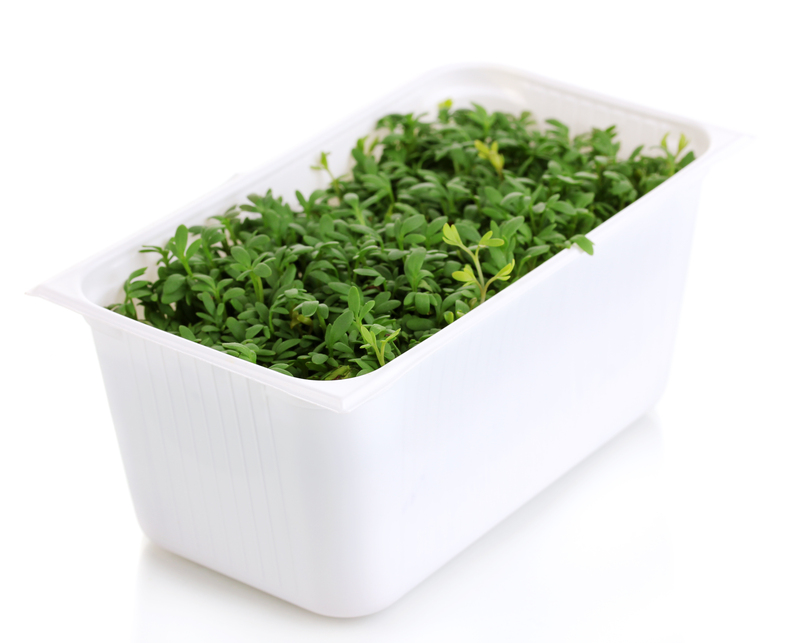Upcycling and Donating Used Pots and Pans Instead of Throwing Them Away
Are you searching for creative, eco-friendly ways to deal with old kitchenware? Upcycling and donating used pots and pans is an increasingly popular alternative to tossing them into landfills. Instead of discarding your worn-out cookware, discover how to give them new purpose, benefit your community, and contribute positively to the environment.

Why Avoid Throwing Away Old Pots and Pans?
Each year, millions of pots and pans end up in landfills, where they take decades or even centuries to decompose. The environmental impact of this waste is substantial. By upcycling or donating used cookware, you can:
- Reduce landfill waste
- Conserve resources by extending the lifecycle of materials
- Help those in need by providing affordable or free cookware
- Spark creativity with unique DIY projects
Making sustainable choices with your kitchenware is a small but powerful way to lower your ecological footprint.
What is Upcycling?
Upcycling is the process of transforming old, discarded, or unused items into something new and valuable. Unlike recycling, which breaks down materials to make new products, upcycling preserves the original item and gives it a fresh lease on life. Upcycling old pots and pans offers creative opportunities to make beautiful, functional, and decorative objects from items you might otherwise throw away.
Top 7 Benefits of Upcycling and Donating Used Pots and Pans
- Environmental preservation: Landfill waste is minimized, and resources are conserved.
- Supporting local charities: Many organizations accept kitchenware donations for people in need.
- Cost-efficient home decor: Upcycle for budget-friendly art and home projects.
- Unique garden ideas: Give your old kitchenware a purpose outdoors.
- Fostering creativity: Explore fun DIY projects with children or by yourself.
- Educational value: Teach others about sustainability and repurposing.
- Community building: Join local upcycling groups and share your creations.
How to Assess If Your Pots and Pans Are Ready for Upcycling or Donation
Before giving away or repurposing your cookware, evaluate their condition:
- For Donation: Clean, free from deep rust, handles attached, and still functioning.
- For Upcycling: Items too damaged for kitchen use (broken handles, dents, warped surfaces) but structurally intact.
- Completely Beyond Use: Severely corroded or hazardous materials (lead or peeling non-stick) should be recycled at a proper facility, not upcycled or donated.
Pro Tip: Wash all used cookware thoroughly before upcycling or donating to ensure safety and cleanliness.
Creative Upcycling Ideas for Old Pots and Pans
Upcycling your kitchenware doesn't require advanced DIY skills--just a bit of creativity! Here are some ingenious ideas for repurposing old pans and pots:
1. Planter Pots for Indoor or Outdoor Gardens
Transform that old saucepan or dutch oven into a vibrant flower pot or herb planter. Drill a few drainage holes in the bottom, fill with soil, and plant your favorites. Not only are these planters durable and unique, but they also add quirky charm to your patio or window garden.
2. Bird Feeders or Bird Baths
Use shallow frying pans or saucepans to create rustic bird feeders or baths. Hang them from trees or mount them on stands, and enjoy birdwatching from your yard while giving your cookware a second life.
3. Wall Art and Decorative Displays
Give your kitchen or dining area a vintage vibe by hanging old pans or lids as wall decor. Paint fun patterns or chalkboard labels, or leave as-is for an industrial aesthetic. The possibilities are endless for upcycled kitchenware wall art.
4. Organization Bins and Holders
Repurpose large pots to store craft supplies, tools, or even pet food. Miniature frying pans or lids make perfect trays for keys, coins, or jewelry in entryways and bedrooms.
5. Candle Holders and Lamps
Create a cozy ambiance by turning old pot bases or lids into candle holders, or even wire up a unique lampshade using metal colanders or strainers.
6. Clocks, Mirrors, and More
Use a round pan as a base for a funky wall clock or a homemade mirror frame. With a little imagination, any pot or pan can find a new home as a piece of functional art.
Donating Used Pots and Pans: Where and How to Do It
Donating old cookware can have a big impact on people and organizations in your community, especially those supporting families in need, students, or those transitioning from homelessness.
Best Places to Donate Used Cookware
- Local thrift stores or charity shops (e.g., Goodwill, Salvation Army)
- Homeless shelters and transitional housing programs
- Community kitchens and food pantries
- Churches, temples, or local religious institutions
- School kitchens and cooking classes
- Online freecycle or "Buy Nothing" groups
How to Prepare Cookware for Donation
- Clean thoroughly: Scrub off food debris and stains.
- Check for functionality: Make sure handles are secure, and there are no holes or damaging rust spots.
- Pair with lids if possible, and stack sets together.
- Pack safely: Wrap fragile or heavy items to avoid breakage during transport.
- Contact the organization before dropping off; ask if they are currently accepting kitchenware donations.
Environmental Impact of Disposing vs. Upcycling/Donation
- Landfill Waste: Most non-stick and metal pans do not biodegrade and add to the growing landfill problem.
- Production Pollution: Manufacturing new cookware demands mining metals, processing raw materials, and energy usage.
- Resource Scarcity: Many pots and pans are made from finite materials like aluminum, copper, and iron.
- Upcycling Reduces Demand: By repurposing, the need for new materials is diminished.
- Donations Empower Others: Your old pots and pans can help families cook nutritious meals, promoting well-being.
Tips for a Sustainable Kitchen: Preventing Waste in the Future
- Invest in high-quality cookware designed for longevity.
- Avoid impulse purchases; buy only what you need.
- Maintain your cookware properly (avoid dishwashers on non-stick, use correct utensils).
- Repair minor damage like loose handles before it becomes unfixable.
- Recycle responsibly if items are truly beyond use; check city programs.

Frequently Asked Questions About Upcycling and Donating Used Pots and Pans
Can I recycle pots and pans instead of upcycling or donating?
Most metal pots and pans can be recycled at local scrap metal or recycling facilities. However, coated or non-stick pans should be checked for facility acceptance, as coatings can complicate recycling.
What if my cookware is really old or heavily used?
If it's structurally sound, consider upcycling into non-food uses or decorative items. If it's still functional, many charity thrift shops happily accept it.
Do housing programs and shelters always need cookware?
Yes! Pots and pans are always in demand at homeless shelters, transitional housing, and refugee support organizations. Always call first to confirm their current needs.
Is upcycling old kitchenware safe?
Absolutely, as long as the items are used for crafts or decor and not for cooking, especially if they have non-stick coatings or are damaged.
How can I inspire others to upcycle or donate?
Share your upcycling projects on social media, organize donation drives, and talk to family and friends about sustainable practices. Every effort counts!
Conclusion: Make a Lasting Difference With Your Old Pots and Pans
By choosing upcycling or donating used pots and pans, you'll help the environment, give back to your community, and ignite your own creativity. Don't let your cookware contribute to landfill waste--there's almost always another use or a person who can benefit from it. Take the sustainable route today, and watch how small actions can create meaningful change!
```